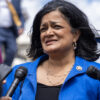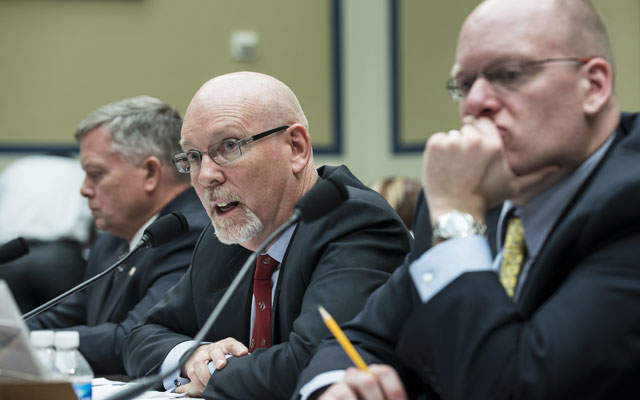Today’s Benghazi hearing of the House Oversight and Government Reform Committee gave Americans the first public eyewitness account from anyone actually on the ground in Libya on September 11, 2012.
Gregory Hicks, the former number two at the U.S. embassy in Tripoli, walked committee members through that fateful night. The testimony of the witnesses was totally gripping, extraordinary, and very emotional. Even if some of this account had already been made public, hearing it live was nothing less than tragic.
Unbelievably, it took eight months for this hearing to happen. Credit goes to the great courage of the three witnesses—Hicks, Mark Thompson, who leads State’s Foreign Emergency Support Team (FEST), and Eric Nordstrom, former regional security officer for the Middle East. And credit also goes to the persistence of committee chairman Darrell Issa (R–CA) to shine a light on the terrorist attack that took the lives of four brave Americans, including Ambassador Christopher Stevens.
Most impressive were the glaring contrasts contained in the testimony. Hicks’s on-the-ground testimony shows both the glaring inadequacy of Washington’s response and the heroic efforts of the embassy and CIA teams on the ground in Libya. Both aspects of this case should be explored.
Standing out in the testimony was the fact that no one, from Ambassador Stevens on down, in any way interpreted the attack as part of a demonstration. Hicks described receiving two phone calls on his cell phone from Stevens. When the two of them made contact, Stevens told him, “Greg, we are under attack.” This was unambiguous.
It was also stunning to learn that the hospital to which the body of Stevens was carried after the attack on the Benghazi consulate was one controlled by the group responsible for the Benghazi attack, Ansar al Sharia. This completely contradicts the public statements made by Secretary of State Hillary Clinton to the American public.
And it was tragic to hear from Hicks of the frustration of the rapid response team, which was ready to deploy to Benghazi to assist their fellow Americans under attack. The rapid response team was ready but was told to stand down. They were told not to go to Benghazi, and they were “livid.”
Back in Washington, it took Clinton until 2:00 a.m. to call Tripoli to ask what was going on. Meanwhile, Thompson testified that the FEST team, created explicitly for such emergencies, was cut out of the action and the planning of the response.
But most of all, one got a sense of how alone the U.S. personnel in Libya were.



























